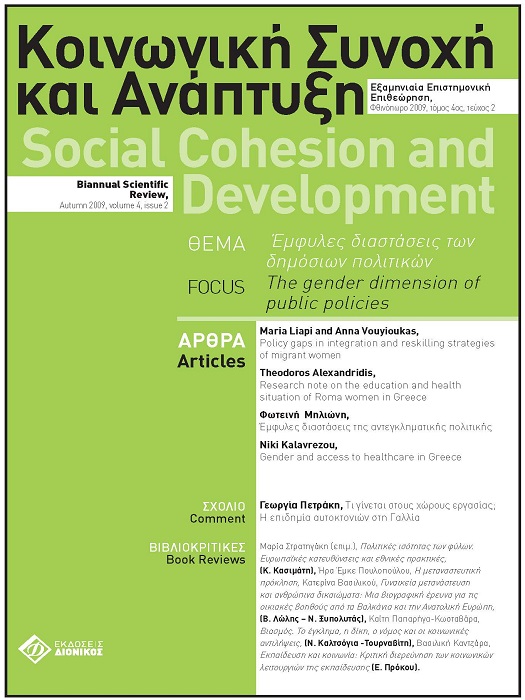Policy gaps in integration and reskilling strategies of migrant women

Abstract
Although language learning and reskilling
are indispensable components
of EU integration policies for third
country nationals, existing policies and
infrastructure in Greece are insuffi cient
and incoherent particularly with regard
to migrant women. The main focus of the
paper is how integration policies - especially
language learning, formal education and
vocational training opportunities affect
migrant women’s positioning into the labour
market and their life plans. How do migrant
women cope with the absence of reskilling
opportunities and what alternative strategies
do they develop to open new paths and
overcome marginalization? Improvising in
language learning, upgrading professional
profi les, building a career through voluntary
work and self employment constitute
exemplary cases of agency and strategies
devised by migrant women in the context of
Greek migration policies and society.
Article Details
- How to Cite
-
Liapi, M., & Vouyioukas, A. (2016). Policy gaps in integration and reskilling strategies of migrant women. Social Cohesion and Development, 4(2), 159–171. https://doi.org/10.12681/scad.8913
- Section
- Articles

This work is licensed under a Creative Commons Attribution-NonCommercial-ShareAlike 4.0 International License.
Authors who publish with this journal agree to the following terms:
- Authors retain copyright and grant the journal right of first publication with the work simultaneously licensed under a Creative Commons Attribution Non-Commercial License that allows others to share the work with an acknowledgement of the work's authorship and initial publication in this journal.
- Authors are able to enter into separate, additional contractual arrangements for the non-exclusive distribution of the journal's published version of the work (e.g. post it to an institutional repository or publish it in a book), with an acknowledgement of its initial publication in this journal.
- Authors are permitted and encouraged to post their work online (preferably in institutional repositories or on their website) prior to and during the submission process, as it can lead to productive exchanges, as well as earlier and greater citation of published work (See The Effect of Open Access).


